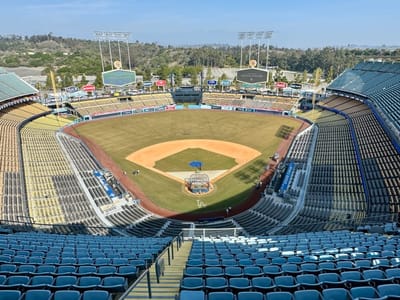Copyright and the Commons
Today's the big day in court. After four years of work, Larry's finally getting his chance to turn the tide, almost singlehandedly. I have high hopes for the Eldred case, though many predictions are for a landslide loss. The curious thing for me is hearing friends on both sides of the political spectrum (I have some big time Bush supporting pals) agree the extensions have gone too far, which is a good sign.
A year ago, I had little idea what the concept of public domain really meant aside from really old books and movies. Over the past 7 or 8 months that I've been working on the Creative Commons, I've come to recognize and respect what a true commons for our culture would mean. Of course, it's mostly imaginary, as copyright has encompassed almost everything from the better part of last century and limited the use of works.
There's the old saying that good artists copy and great artists steal, and that's not based on outright theft, but the acknowledgement that we are all influenced by others' work, and things like hip hop music and photoshop collages point out how great new art can be created when combining other works into new works.
There are more turntables sold today than guitars. People use both instruments to create music, but what specifically do people do with turntables? They play (usually) two previously released (and copyrighted) vinyl records, mixing them in various ways (scratching, layering, etc) to create new music works. I tend to think of "View Source" the same way. I don't copy others' code and layouts outright, but I started learning HTML from Justin Hall's source, I learned Cascading Style Sheets after sampling Zeldman's homepage in 1998. I learned javascript by copy and pasting rollover code people explicitly shared with the world. We all learned how to do layout tricks like tables, frames, and use of invisible gifs from looking at how others did their sites and visually deconstructing their work. I can create pages with 3-column CSS layouts today because Eric Costello, Owen Briggs, and the Bluerobot.com guy have done the legwork and shared their experiences with us all.
The past 8 years of web development depended upon and blossomed due to sharing code with one another. In the beginning there were no books, only sparse documentation. Then there were a few books and a lot of pages to learn from. Eventually you had new media college programs and books on any aspect of web development imaginable, and they owe their existence largely to the view-source menu option. I've seen perfectly good web technologies die from atrophy, because viewing and sharing code was close to impossible. When viewing others' source isn't possible, code exchanges fill the gap, and without them, the technology would go nowhere.
Right now, I'm listening to some music that has roots equally in rock and jazz. Each song fills ten minutes of time with meandering melodies, abrupt pauses and starts, and is layered with speech samples from 1960s political activists. To say the songs were developed in a vacuum would be ignoring the obvious. We all have influences.
I've toyed with the free resources at iStockphoto (as have others), and I've played with public domain video in the prelinger archives. If someday copyright was a different story, allowing people to use and reuse others' works instead of letting them decay and rot until they someday enter the public domain (in many cases over 100 years after their creation), our culture could benefit greatly in ways we can't possibly fathom today. The great promise of the internet was to house and make instantly available the entire scope of human knowledge. Without new works entering into the public domain, that knowledge is largely lost.
As the law currently stands, this very piece I've written here and the image I made to accompany it are protected from someone trying to sell it and pass it off as their own, and that's great for me as an artist/writer. Yet that also means neither will be available for reprinting, repurposing, or any other use without my permission for a very long time. If I die on my 75th birthday, you'll be free to reuse the above image or this text in 2117. Is that what copyright was intended for?
While most people are betting against Eldred and Lessig, I'm hoping the Supremes see the light and remember what the original framers intended. Here's to the public domain, the greater good, and the creative commons that someday might be.
Subscribe to our newsletter.
Be the first to know - subscribe today





